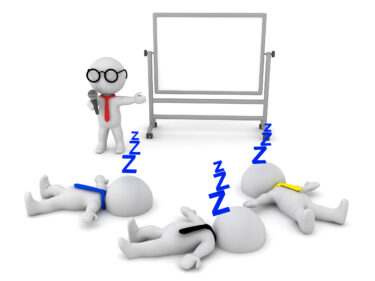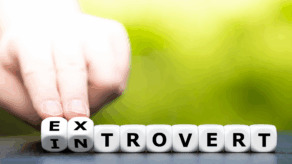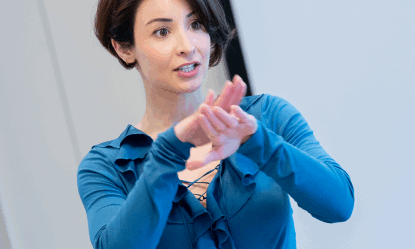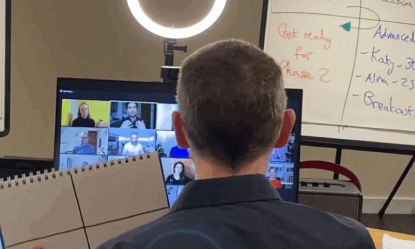Imagine you’re in the company conference room, the senior leadership team are trickling in one by one, and there’s banter and lively conversation yet you don’t feel part of it. Your sole focus is on the project you’ve worked on for months and you’re about to present your findings. The stakes are high, this presentation could be your ticket to a promotion. As you speak, the room grows quieter, eyes fixed on you. But instead of feeling confident, your heart races, and your thoughts scatter. The more you try to stay on track, the more you lose your audience. You stumble through your points, and when you finally finish, the response is lukewarm at best. The opportunity you hoped would catapult your career now feels like a setback.
We may not all have been in a high-stakes situation where our poor presentation skills let us down but I’m sure we can all reflect on those moments where we could have been more engaging, more impactful, more human.
Missed opportunities nag at us like a stone in our shoe, small, but impossible to ignore, lingering in the back of our minds, reminding us of what could have been. They’re the moments that replay in our heads, the “what if’s” that keep us up at night. When it comes to your career, these missed chances can be the difference between staying in place and moving up the ladder.
The value of great communication
Yet, despite knowing the importance of these moments, we often dismiss the value of presentation skills and other soft skills. Why? Because they don’t seem as tangible or measurable as technical expertise or hard data. We tend to prioritise the project’s content, its facts, figures, and results, over how that information is delivered. In the rush to meet deadlines and achieve outcomes, the “how and why” of communication is often seen as secondary, even trivial.
But the truth is, soft skills like effective communication, emotional intelligence, and presentation abilities are the glue that holds everything together. They are the vehicle through which your hard work, ideas, and expertise are showcased to the world. Without them, even the most brilliant insights can be overlooked or undervalued. We dismiss these skills because they seem secondary, but in reality, they are essential. They’re the difference between a message that resonates and one that falls flat, between a career that advances and one that stalls.
According to Forbes, presentation skills are in the top 10 soft skills to have in 2024 alongside negotiation skills and critical thinking.
What’s the danger of poor presentation skills?
- Missed Opportunities for Leadership – Leadership isn’t just about making decisions, it’s also about communicating your vision and ideas to others. If you struggle to convey your message, or explain the why, you may miss out on opportunities to lead projects, influence decisions, or move into leadership roles. Your ability to inspire and guide others depends heavily on how well you present your ideas.
- Limited Professional Growth – Presentations are often a key part of performance evaluations, promotions, and job interviews. If you can’t articulate your achievements or the value you bring, you may find yourself overlooked for development or new opportunities. Mastering the art of presentation helps you stand out and demonstrate your readiness for the next level in your career.
- Reduced Credibility – Your credibility is on the line every time you present. Poor presentation skills, such as mumbling, lack of eye contact, or disorganised content can make you appear less competent and knowledgeable. Strong presentation skills, help you build trust and establish yourself as a credible authority in your field.
To avoid these pitfalls and excel in your career, it’s essential to develop a core set of skills that will transform you into an engaging presenter. These aren’t just techniques to help you get through a presentation—they’re the foundational abilities that will allow you to connect with your audience, convey your ideas with clarity, and leave a lasting impression. Here are three skills to focus on:
What do good presentation skills look like?
- Clarity of Message – A great presentation starts with a clear and concise message. It’s not enough to have a deep understanding of your topic; you need to be able to distill your information into a compelling narrative that resonates with your audience. This means identifying the key points you want to convey and organising them in a logical, easy-to-follow structure. Simplifying complex ideas without losing their essence is an art, and it’s what separates good presenters from great ones. Your message should be focused, avoiding unnecessary jargon or details that might distract from the core idea you want to communicate.
- Audience Engagement – This goes beyond simply delivering information; it’s about creating a connection with the people in the room. Great presenters know how to read their audience, adapt their delivery on the fly, and make the experience interactive. This could involve asking questions, encouraging participation, or using storytelling techniques to make the content more relatable. The goal is to keep your audience interested and involved throughout your presentation, making your message more memorable and impactful. Confidence is key, if you don’t believe in your message, your audience won’t either. This doesn’t mean you need to be a natural-born speaker; confidence can be developed with practice. Focus on your body language, eye contact, and tone of voice. Practice pacing your speech, using pauses for emphasis, and projecting your voice so that everyone in the room can hear you. The more you practice, the more natural and confident your delivery will become.
- Emotional Intelligence – Presentation isn’t just about what you say, it’s also about how you make your audience feel. Emotional intelligence (EQ) plays a key role in this. By understanding and managing your own emotions, you can project confidence and calm, even in high-pressure situations. At the same time, being attuned to the emotions of your audience allows you to respond appropriately, whether that means slowing down if you sense confusion or energising your delivery to recapture waning attention. High EQ helps you connect with your audience on a deeper level, making your message resonate long after the presentation is over.
It’s easy to underestimate the power of a well-delivered presentation until you find yourself in a situation where your message isn’t getting through. Only then do you realise that content alone isn’t enough—how you communicate it matters just as much, if not more. And in those moments, it becomes painfully clear that dismissing the importance of presentation skills could be what’s holding you back from reaching your full potential.


















